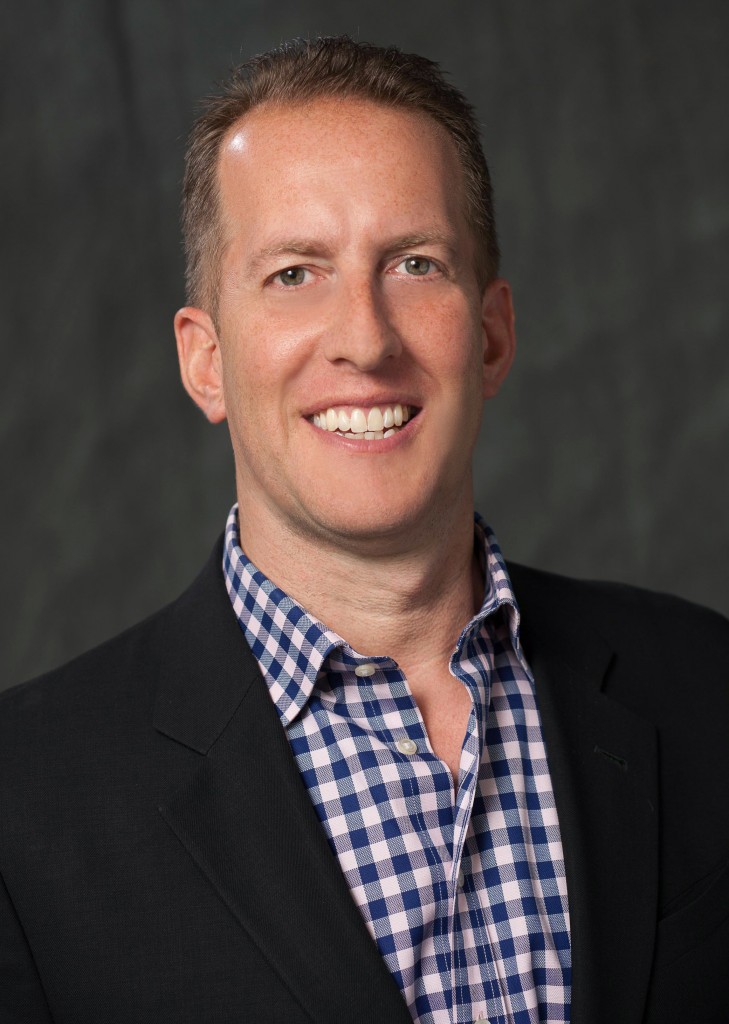Google Adwords Interruption May Be Coming for Business Lending and MCA This Week
July 12, 2016 Get ready for Google to probably misinterpret what you do come July 13th, the day that Google has decided to ban all consumer lenders that charge more than 36% APR or have terms less than 60 days, from paid search advertising. This is according to an announcement Google made back in May, as part of a campaign they’ve suddenly decided to undertake to stop profiting from payday lending.
Get ready for Google to probably misinterpret what you do come July 13th, the day that Google has decided to ban all consumer lenders that charge more than 36% APR or have terms less than 60 days, from paid search advertising. This is according to an announcement Google made back in May, as part of a campaign they’ve suddenly decided to undertake to stop profiting from payday lending.
Nevermind that Google is openly in the payday lending business themselves through their investment in LendUp, a short term lender they made a second massive investment in just a few months before they moved to ban everyone else. And nevermind of course that the CFPB has just extended their enforcement activity to middlemen, most notably by going after T3Leads and its owners for directing borrowers to questionable prospective lenders that pay top dollar, arguably in a similar banner to what Google does with its searchers and its paid payday search results.
Nevermind all that.
Here’s what you might mind. A Google Adwords specialist might have no idea what kind of financial activity you engage in and it could end up costing you. Eight months ago for example, the organic search results lumped merchant cash advance into cash advance, triggering a special box for merchant cash advance seekers that inadvertently (or maybe intentionally) referenced payday loans.
If your Google ads do get suspended this week, the semantics surrounding the term cash advance could create a challenge.
Google wrote that commercial loans are exempt from the ban and that should presumably mean all commercial finance products such as factoring and merchant cash advance. But if they screw up, and in all likelihood they probably will with some companies, be as clear as you can in explaining the commercial nature of your product and how it works.
Because if they don’t get it, you could be banned for life.
Fundry Secures $75 Million Credit Line, Confirming That This Niche Is Still Hot
July 5, 2016
Fundry has secured a new $75 million credit line, according to the company’s CEO Isaac Stern. The transaction was facilitated by Brean Capital and Pi Capital.
Fundry is commonly known by one of their subsidiary companies, Yellowstone Capital. According to a document obtained by deBanked, the company did more than $40 million in deals last month, with the vast majority funded in-house. The positive announcement follows their recent big move from NYC’s financial district to Jersey City, NJ, after being wooed to the state with tax incentives in return for creating jobs.
While confidence has retreated from online consumer lending after the scandals at Lending Club, specialty tech-enabled commercial finance companies, some of whom specialize in merchant cash advance, are still finding enthusiasm from institutional investors. Just over the last three weeks, Bizfi secured a $20 million investment from Metropolitan Equity Partners, Pearl Capital secured $20 million from Arena Investors, and Legend Funding secured a $3 million debt facility from Ango Worldwide. That’s $118 million invested into a very specific niche industry in less than a month.
Fundry alone, facilitated $422 million in funding to small businesses just last year.
Split-Funding MCA and Daily Debit Loans Are Spreading Across the World
July 4, 2016
When banks say no, merchants all over the world are getting funded via non-bank alternatives that resemble products here in the USA. In Hong Kong for example, a special administrative region of China, there are non-bank businesses that offer merchant cash advances and/or daily debit loans.
Having had the opportunity to visit with some of those funders there last week, I was surprised to learn that we spoke the same language. By that I mean that they price deals with factor rates, work with local finance brokers, underwrite files using recent bank statements, do site inspections and more. They even a have decision issued by the highest court in the land that declared merchant cash advances to be purchases, not loans.
Even the pitch is basically the same. “Banks aren’t lending to small businesses,” I heard time and time again in Hong Kong. And that’s probably not going to change any time soon. While the non-bank business financing scene is starting to take off, merchant cash advances in particular have been around there for about seven years already.
Hong Kong’s population is a little less than a third of the size of Australia, where many US-based funders have been expanding to over the last couple years.
Alternative Funders Continue to Look Down Under
June 29, 2016 Add CapRock Services to the growing list of US-based small business funders that have joined the scene in Australia.
Add CapRock Services to the growing list of US-based small business funders that have joined the scene in Australia.
CapRock has formed Sprout Funding as part of a joint venture with Sydney-based family office Huntwick Holdings. Together, they will provide small businesses with loans or revenue-based MCA products up to $100,000.
What’s truly unique is that CapRock will actually be underwriting the deals from their Dallas-based office. And they hope to fund $20 million in two key Australian markets in their first year. Luke Schmille, CapRock’s CEO, told the Dallas Business Journal that he believes the Australian market is very similar to the US. “70 percent of the population is employed by small to medium sized businesses,” he said.
Other funders in Australia that have US-backing include Capify, Prospa via Strategic Funding Source, Kikka Capital via Kabbage, and OnDeck.
Last Fall, John de Bree, the managing director of Capify’s Sydney-based office, told deBanked that he was surprised of the American interest in Australia. “The American market’s 15 times the size of ours,” he said.
One of his competitors, Lachlan Heussler, managing director of Spotcap Australia, was not so shocked. “This is a market that will evolve over time, and we think the opportunity is enormous,” he said.
In an email, CapRock’s Schmille, wrote that they were excited about the expansion abroad.
Bizfi Secures Additional $20 Million Financing
June 28, 2016Small business capital marketplace Bizfi has secured a $20 million investment from New York-based investment manager Metropolitan Equity Partners, supplementing the $65 million infusion in December last year.
Bizfi said this capital will be used to expand and optimize its funding programs and develop an effective marketing campaign to advertise those better.
“Our relationship has deepened over the past few months and when the opportunity to raise additional capital presented itself, MEP was the most logical partner,” said Stephen Sheinbaum, Bizfi founder.
Bizfi has so far crossed $1.7 billion in financing to more than 30,000 small businesses since 2005 with partners like OnDeck, Funding Circle and Kabbage.
Merchant Cash Advance is Not a Loan in Hong Kong
June 26, 2016
It’s not just the New York Supreme Court system upholding the sanctity of merchant cash advances where future receivables are sold for cash up front. In Hong Kong, Global Merchant Funding Limited was charged criminally by the Secretary for Justice for conducting business as a money lender without a license.
The Secretary argued that the Merchant Cash Advance contract was really just a loan in disguise. The court disagreed and dismissed the charges. Government prosecutors appealed the decision to the Court of First Instance, where the future of the product in Hong Kong hung in the balance.
The issue, according to the judiciary brief was one of categorization: whether the relevant transactions should be categorized as loans or as purchases of receivables under the Money Lenders Ordinance.
As a criminal case, the Court reviewed the matter seriously, acknowledging that there could be a chilling effect on commercial activity if the verdict were to be overturned and the defendant found guilty.
The prosecution argued that such receivables purchased did not actually exist:
“The Purchased Amount does not represent a debt due from any customer or other third party, including the credit card processor, but is an amount in respect of which the merchant is the only primary obligor and the guarantees given to GMF are guarantees of the merchant’s own liability and not are guarantees for the performance of any debt or obligation that has been sold.”
The court rejected this argument on the basis that such receivables were not defined by the agreement as the prosecution tried to define them:
The expression “Purchased Amount” is defined as “The total amount of the Future Receivables sold by the [merchant] to [GMF]” to be “collected by [GMF] through the deduction of a specified percentage of the [merchant’s] periodic batch settlements from the [Processor]”. […] The receivables consisting of credit card settlement payments to be made by the Processor, are assignable choses in action. In consideration of the Purchase Price received, the merchant bound itself irrevocably to instruct the Processor to pay to GMF directly the Split Settlement amounts upon processing each batch settlement until GMF had collected sums totaling the Purchased Amount. Such instruction was duly given by the merchant. This constituted an equitable assignment of the relevant sums which took effect as and when they came into existence.
Ultimately, the Court decided that even if the economic outcome of the transaction was not distinguishable from a loan with interest, it was not a loan in legal substance and effect and is therefore not covered by the Money Lenders Ordinance.
For these reasons the Secretary’s appeal was dismissed, but the prosecution appealed it even further.
In May 2016, in the Court of Final Appeal, Global Merchant Funding Limited’s contract was once again upheld as not a loan.
The Court held that the MLO’s definition of a “loan” to include “every agreement (whatever its terms or form may be) which is in substance or effect a loan of money” must be understood to be referring to an agreement which has the legal substance or effect of a loan and not an agreement with such an economic or commercial substance or effect. The Courts will only look beyond the agreement between the parties when the agreement is a sham, which was not the case in this appeal.
So decided, merchant cash advances structured in such a way as these contracts are not loans in Hong Kong.
Looking Back & Forging Ahead: A Dialogue With David Goldin
June 23, 2016 DeBanked Magazine recently caught up with David Goldin, the founder, president and chief executive of Capify, a New York based alternative funder. Goldin, who started his business in January 2002 as a credit card processing ISO, has been an outspoken and active participant in the alternative funding space since that time. He is also president of the Small Business Finance Association, the industry trade group that he helped found in 2006. The following is an edited transcript of our discussions.
DeBanked Magazine recently caught up with David Goldin, the founder, president and chief executive of Capify, a New York based alternative funder. Goldin, who started his business in January 2002 as a credit card processing ISO, has been an outspoken and active participant in the alternative funding space since that time. He is also president of the Small Business Finance Association, the industry trade group that he helped found in 2006. The following is an edited transcript of our discussions.
DeBanked: Since you started the business, Capify has grown from a credit card processing ISO into a global company with more than 200 employees in the U.S., U.K., Canada and Australia. Please talk a little about where Capify is today and your future growth plans for the company.
The key here is responsible growth and the responsible providing of capital. Anyone can fund deals. The hard part is collecting the money back, so you have to know how to operate during a down economic cycle. Capify did it very successfully in the last economic downturn. As we move into uncertain times, it seems there’s a greater possibility that the economy is going to get worse over the next 18 months. Even so, we’re working on several new products and new partnerships that we’ll be announcing shortly. Again, the trick is to be responsible about growth. We’re staying laser focused on our business right now and being very selective about where to invest capital in new projects during these uncertain times.
DeBanked: Continuing on the subject of growth, what do you think has been the most significant contributor to the company’s upward progression over the past several years?
I think our underwriting model is what has helped us the most. Our performance data has allowed us to make decisions in tough times and automate our processes further based on historical trends. We have 10-plus-years of performance data in the U.S. and 8-plus-years overseas. Most companies have only three to five years of experience, and most importantly, they haven’t been through an economic downturn.
DeBanked: How has the competitive landscape in the industry changed in the past few years?
Lenders are a different quality now. There is more variation in lenders than ever before—from lower-risk providers of capital to higher-risk providers of capital. Higher-risk providers of capital tend to charge a lot more. They also tend to have very aggressive business practices. The public perception is that all funders are the same—but we all have different business models and ethics in the way we operate our companies. It can be challenging at times to help customers, the media, partners and investors understand the difference between Capify and less scrupulous players.
DeBanked: What do you think the industry will look like in five to 10 years?
I think you’re going to see a lot of consolidation, and I think you’re going to see a whole new variety of products being offered to customers. The customer acquisition cost is too high to only offer one type of product. Similar to banks, alternative funders are going to start offering multiple products, if they aren’t already, and that will help make for a stickier customer and increase the bottom line.
Also, there will be significantly fewer funders than there are today and many ISOs will not be able to survive. I think more and more companies are going to start building their own internal sales forces. There are lower default rates and higher renewal rates in the direct model; the ISOs don’t have skin in the game. I think some of the stronger ISOs over time will become part of the larger funding companies.
DeBanked: There seems to be a consensus in the industry that more regulation of alternative financing is inevitable. How is regulation going to change how alternative funders operate and how might it change the competitive landscape?
I think you’ll see a lot more self-regulation before you see actual regulation when it comes to business-to-business lending. Funders are taking self-regulation more seriously and there have been more associations formed to educate policy-makers about the performance rates, default rates, renewal rates, customer satisfaction levels and how the products work.
The one area there could be potential regulation is in providing capital to sole proprietorships. The argument is that tiny businesses may need more assistance than larger companies, and some make the argument that these micro businesses are quasi-consumers. We disagree. We feel that if a sole proprietor is using the capital for his business, it should be considered a business transaction. However, several factors— including rampant media attention, more publicly traded alternative financing companies, tremendous growth of marketplace lending over the past several years and an election year—provide a recipe for all the regulation noise.
DeBanked: What are the biggest risks our industry is facing right now?
We’ve seen the movie before—in 2007 and 2008—when alternative funders didn’t factor in the severity of how an economic downturn could affect their business. The risk is there again. Funders have to be even more responsible. It’s not about how much you fund, it’s about much you collect back. You can’t be super-aggressive during times you think you may be
going into a down period. There could be significant industrywide fallout from irresponsible underwriting.
DeBanked: What advice would you give to new funders entering the market now?
I think the boat has left the dock; I don’t think they will be able to compete with established players in a meaningful way. Someone who really wants to be in the business should look at acquiring several small to medium-sized companies and rolling them up to get scale. It would be very challenging and require many years of investment to start from scratch at this point to build a substantial company. It’s harder now than it was in the past.
DeBanked: Can you talk a little about where you see the future of banks and alternative funders and how they will work together?
I think some banks will want to acquire platforms for speed to market or partner with platforms where the banks provide the capital and the funders service the loans. The latter is the model that J.P. Morgan and On Deck chose. The challenge is that the banks aren’t going to want to take a risk on applicants that don’t fall within the certain credit profile that they are comfortable lending to. While the partnership model will help banks make decisions faster about lending to small businesses, many small businesses will continue to be underserved. This could, in turn, provide an opening for independent funders who are willing to provide capital, albeit at higher rates because you can’t make a profit providing working capital (typically unsecured) at bank rates to the credit and risk profiles of businesses that most alternative funding companies work with today.
DeBanked: Please address the major technology trends shaping the alternative financing industry and what this means for industry players?
My opinion is the technology is ahead of the typical business brick-and-mortar business owner. Whilethe technology exists for business owners to go to a website and provide their personal and business data, we have found most business owners want to speak with a salesperson first, get a comfortable level and then apply online. (Compared with going right to a website and applying without a human involved). However, each year that goes by more and more business owners get more comfortable with technology and a greater percentage of them will look for a completely online experience. Being that it costs millions of dollars and years of time to build these platforms, you have to constantly evolve your platform to stay relevant. You can’t just snap your fingers and have it up and running.
I think the trend for our specific industry is being technology-enabled rather than being pure-bred tech companies. Customers still want to speak to people,but you also have to have viable backend technology so your business is scalable. Technology, such as digital bank statement transmission via various platforms, also helps cut down fraud compared with reviewing manual documents that can easily be forged or “Photoshopped.”
DeBanked: How can alternative funding companies best meet the challenges they are likely to face over the next few years?
I think alternative funders need to focus on more responsible providing of capital. This means really focusing on business owners’ ability to repay, taking a hard look at overburdening them with debt through stacking, for example, and further evaluating the referral sources of business they are getting their deal flow from in order to ensure that business owners get the best possible experience. Furthermore, I think as more alternative funding companies focus more on profitability and not just growth, coupled with the tightening of available institutional capital with an appetite for our industry, you will see some of the recent trends potentially reverse such as extremely high approval rates and industry margin compression.
The Unsung Disruption in Online Lending – Stacking, Litigation and Questionable Debt Negotiators
June 22, 2016
Give a small business two options, a low APR 3-year business loan and a short term loan with a high factor rate, and you’ll find advocates for each product arguing over which is better and why. We’ve been led to believe that it’s one versus the other, that one is good and one is bad, and that’s all there is to the story. Entire business models have been developed along the lines of this thinking, algorithms deployed and merchants funded, along with narratives framed in the mainstream media about why one system is superior to others.
But to hear the men and women in the phone rooms tell it, when given a choice between one funding option or the other, small businesses are often choosing both at the same time. Reuters said that stacking is the latest threat to online lenders, and in many ways they’re right. The practice isn’t new of course, the tendency for merchants to take on multiple layers of capital (often times in breach of other contracts) has been a central cause of tension between funding companies for the last few years. But the reason the story is bubbling over into traditional news media now as the latest threat, is because opponents of stacking assumed that the practice would be eradicated by now. There was this false sense of hope that government agents in black suits would show up one day unannounced after hearing that a merchant had taken a third advance or loan despite having not yet satisfied the obligations of the previous two. And when that didn’t happen, some of the models heralded as better for the merchant started to show cracks. What happens to the forecasts when the merchants priced ever so perfectly for a low rate long term loan go and take three or four short term loans almost immediately after? Back in October, Capify CEO David Goldin argued that long dated receivables were already dangerous to a lender regardless because the economy could turn south. “You’re done. You’re dead. You can’t save those boats. They are too far out to sea,” he told deBanked.
Sue everyone?
When it comes to disruption, nothing has changed the game as much as stacking, and companies must prepare for the likelihood that it could be around forever. That means forming a long-term business model that is equipped to deal with this practice. Several lawsuits have been waged in an attempt to generate case law to deter it, including one filed last year in Delaware by RapidAdvance against a rival. Patrick Siegfried, assistant general counsel of RapidAdvance told the Wall Street Journal last fall, “we’re doing it to establish the precedent,” he said. “This kind of thing is happening more and more.” At the time, a motion to dismiss the case entirely was pending. RapidAdvance since won that motion but only by a hair and with a judge that was very reluctant to move the case forward.
Last October, MyBusinessLoan.com, LLC, also known as Dealstruck, sued five companies at once, a mix of lenders and merchant cash advance companies after one of their borrowers defaulted, allegedly because of actions carried out by the co-defendants. They were greeted with several motions to dismiss for failure to state a claim.
Even if these funding companies don’t win, simply letting the world know that they’ll sue rivals for stacking can act as a deterrent. But it’s an expensive tactic, especially when some defendants are more than happy to litigate the claims. Litigation is definitely an underrated cost of doing business for online lenders and merchant cash advance companies. In one recent case, a merchant challenged the legitimacy of a contract with Platinum Rapid Funding Group, a company whom they sold a portion of their future receivables to. The merchant asked the judge to recharacterize the contract to a loan so that they could try to use a criminal usury defense. The judge refused in a well-written decision that called the merchant’s attempt to do that “unwarranted speculation.” But even with the precedent of a favorable ruling, countless merchants have attempted to come up with strategies to wriggle their way out of their agreements, sometimes with ample legal counsel at their side.
Debt negotiators and questionable characters
Stacking has become a cost of doing business, but something else is creeping in as well. An entire cottage industry of “debt negotiators” has set their sights on online lenders and merchant cash advance companies, and at times these self-professed business experts don’t even realize there’s a difference between the two. One MCA funder told debanked earlier this week that a merchant in default claimed to be represented by Second Wind Consultants, a debt restructuring firm that lists one Don Todrin as the CEO on their website. Not mentioned among Todrin’s accolades is that he is a disbarred attorney who pled guilty to federal bank fraud charges in 1994, according to an old report by the Boston Globe, after he filed at least nine false financial statements to acquire $1.4 million in loans.
Another purported debt negotiation firm, who has the irked the ire of merchant cash advance companies, is apparently trying to assert affiliation to a native American tribe and invoke tribal immunity in response to lawsuits against them, according to court filings in New York State.
And only three weeks ago, an attempted class action against a merchant cash advance company failed because each named class representative had waived its right to participate in a class action in exchange for business financing. The initial action, before being moved to federal court, was brought by a merchant represented by an attorney who had just been reinstated to practice law, following a long suspension for pleading guilty to identity theft.
On top of it all, there are merchants themselves that act in bad faith, with some preying on the perceived vulnerabilities of an online-only experience. In the November/December 2015 issue of deBanked Magazine, attorney Jamie Polon said some applicants don’t even own businesses at all, they just pretend to. “They’re not just fudging numbers – they’re fudging contact information,” he told deBanked. “It’s a pure bait and switch. There wasn’t even a company. It’s a scheme and it’s stealing money.”
Weeding out bad merchants is a job for the underwriting department but for the good merchants seemingly deserving of those 3-5 year loan programs, the future is not as easy to predict as it once was. They might stack regardless, no matter how favorable the terms are. And given that government agent ninjas aren’t likely to drop down from the sky to stop them any time soon, many funding companies are faced with hard choices. Are the initial forecasts still valid? Is it economically feasible to turn the client away for additional funds because they breached their original agreement, all while the cost to acquire that customer in the first place was really high? Do you sue your rivals, make them look bad in the press, or lobby for regulations that will hurt them? How do you handle the new breed of debt negotiators who use the same UCC lead lists as lenders and brokers?
Sure, things like marketing costs are going up and the capital markets are less inviting than they used to be. But once loans and deals are funded, making sure those agreements are lived up to can take time, resources, and undoubtedly a lot of lawyers. And realistically, these issues aren’t likely to change any time soon. Help, in whatever relief form some are hoping for, is not on the way. How’s that for disruption?






























